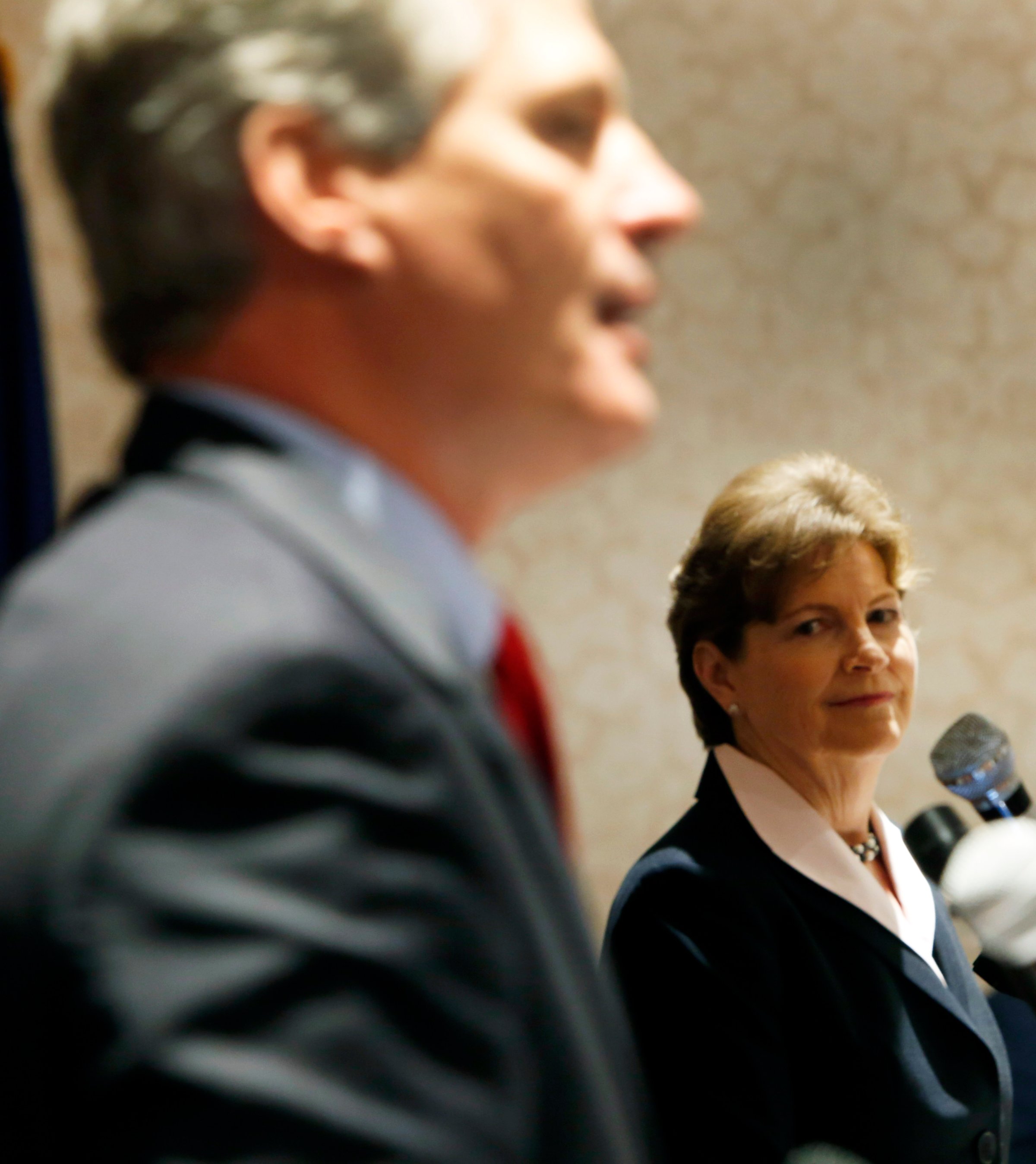
The Associated Press dropped its latest national poll Wednesday ahead of the midterm elections due to be held in less than three weeks. The poll had a spate of expected findings: likely voters favor Republicans to take control of the U.S. Senate, the top issue remains the economy, and no one likes either party very much. Then, buried in the seventh paragraph of the story, was this nugget about women voters:
Women have moved in the GOP’s direction since September. In last month’s AP-GfK poll, 47 percent of female likely voters said they favored a Democratic-controlled Congress while 40 percent wanted the Republicans to capture control. In the new poll, the two parties are about even among women, 44 percent prefer the Republicans, 42 percent the Democrats.
Given Democrats’ unrelenting drumbeat on women—their women’s economic agenda, the GOP’s “War on Women”—for the last six months, this looked like surprising news. Democrats have staked the fate on the Senate on turning out one demographic: unmarried women, who vote reliably Democratic but tend not to show up in off presidential elections. Democrats have won women every year since the Reagan era except for 2010 and in losing them they lost control of the House and six Senate seats. Thus their strategy this year to turn out unmarried women in order to prevent a 2010 from happening all over again. If the AP poll is correct Democrats are in deep trouble.
Needless to say, paragraph seven led the Drudge Report much of the morning: “Poll shock: Women want Republicans!” That spawned a spate of headlines from conservative news sites. Townhall led with: “Poll: More Women Plan to Vote For Republicans in Midterms.” And Hotair blared: “Republicans closing the [gender] gap.”
But the poll is just one data point, and there is a good reason to be skeptical of a major shift in the female electorate. The reason is the voter screen that the AP used.
“Their likely voters screen in this survey is very similar to the 2010 electorate—i.e. more conservatives than moderates are likely to vote,” says Dave Winston, a GOP pollster. “But if you’re looking at variety of different surveys, the voter screening differences are huge, so you’re depending on how they phrase a question—are you likely to vote—or a series of questions to come up with who’s in the poll.”
Winston says the AP took steps after its polls proved off course in 2012 to correct what they saw as flaws in their survey-taking. But their new processes remain unproven. “The proof will be in the pudding,” he says.
The AP says they stand behind the poll. “The poll does show quite clearly that women who are likely to vote and have a preference for who controls Congress have shifted toward the Republicans. And I stand firmly behind that finding,” says Jennifer Agiesta, the AP’s director of polling.
Granted, every midterm electorate skews older, more conservative and more male and Democrats face an uphill battle trying to turn out a demographic that doesn’t usually vote, but this poll is either wrong or “it’s a precursor to a trend that none of us have spotted yet,” says Celinda Lake, a Democratic pollster who together with GOP pollster Ed Goeas does George Washington University’s Battleground State polls. “But I haven’t seen any other poll that shows that.”
“It seems off, honestly” Lake says. “We aren’t seeing any place where there isn’t a gender gap. We haven’t’ seen any polling that shows women trending Republican. You see men more enthusiastic for Republicans than women are for Democrats, sure. And women are sitting more undecided, which is why both parties are looking to convince women voters before election day, but we haven’t seen anything even approaching gender parity, let alone women trending Republican, in our polls of likely voters.”
The only other recent national poll that breaks out likely voters by sex came out with opposite results. Fox News found Dems winning women 44% to 35% amongst likely voters in a survey conducted Oct. 12-14. And polls in battleground states have Dems winning women by double digits and unmarried women by as much as 30 points in many cases.
“This just isn’t what we’re seeing in competitive races. North Carolina, New Hampshire, Colorado and Michigan all have decisive and, in some cases, historic gender gaps with women favoring Democrats,” says Marcy Stech, a spokeswoman for Emily’s List, which helps elect pro-choice female Democrats. “The GOP can try to cling to this national poll, but the reality is that they continue to be underwater with women voters in key races – women don’t trust them on the economic issues that matter to them and their families. Whether it’s ending gender discrimination in pay, raising the minimum wage or protecting access to health care, women voters know that it’s Democratic candidates who are squarely on their side and they’re going to show it at the ballot box.”
In 2012, Democrats benefitted from a couple of GOP senatorial candidates who said dumb things about women and rape, comments that turned off female voters, helping President Obama and the Democrats win big with women. This cycle, Republicans have avoided such missteps. Both Mark Udall in Colorado and New Hampshire’s Jeanne Shaheen have turned away from War on Women ads and attack lines in the last week. But are Republicans winning women? The preponderance of state and other national polls indicate that isn’t happening.
More Must-Reads From TIME
- The 100 Most Influential People of 2024
- The Revolution of Yulia Navalnaya
- 6 Compliments That Land Every Time
- What's the Deal With the Bitcoin Halving?
- If You're Dating Right Now , You're Brave: Column
- The AI That Could Heal a Divided Internet
- Fallout Is a Brilliant Model for the Future of Video Game Adaptations
- Want Weekly Recs on What to Watch, Read, and More? Sign Up for Worth Your Time
Contact us at letters@time.com